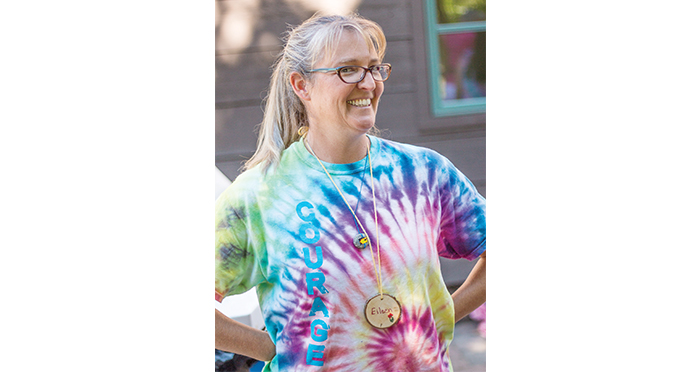As a mother and bereavement counselor for Partners In Care, I am passionate about helping children cope with death. Through my work, I have had the privilege of supporting thousands of children as they experience the grieving process that follows the death of a friend, parent, grandparent, sibling, or other loved one. It is important work, accomplished in a variety of ways including personal and family counseling, school-based programs, summer art camp, and more.
Wherever and whenever the need arises, I want to be there to support them. And this includes educating our community so we can all be more understanding and helpful at a critical time in their young lives.
Myths and misconceptions about the very existence of childhood grief persist, as well as the nature of their expression of grief. However, research has shown that a child’s core personality can be affected by loss even during the early months of life. They express their grief in different ways. Because children may not be able to tolerate grief for long periods of time, they may jump in and out of the process.
Through the years, I have come to realize that grieving is a personal and highly individual experience. There is no so-called ‘normal’ way of experiencing grief – only healthy and unhealthy ways of coping. Children may give the appearance of coping well, when suddenly an unrelated event triggers a disproportionate response.
While they are masters at being able to distract themselves and focus on other things, they may also be pushing emotion back and even lack the vocabulary to express their feelings. Silence is not golden, but it’s also important not to force a child to express their feelings in words. As their brain develops, so will their ability to reconcile the death. Even then, the process does not have an ending point. Children will revisit their loss throughout life, gaining new understanding as they mature.
This July, we celebrated the 10th anniversary of Camp Courage, a 4-day art camp where children are invited to share their grief journey with others their age while having fun. They express themselves through art projects, laughter, and conversation while learning different ways to cope with their loss.
Later this month, another support program for children and their parents or guardians is conducted weekly for eight weeks, beginning September 20. Called My Friend’s House, this after-school program held at Partners In Care helps grieving children realize they are not alone; their thoughts, feelings, and experiences may be similar to others their age. Additionally, personal and family counseling sessions are offered throughout the year—whenever the need arises.
-Eileen Grover is the Child and Adolescent Bereavement Counselor at Partners In Care, where all community bereavement programs are offered at no cost. To learn more, visit www.partnersbend.org.





